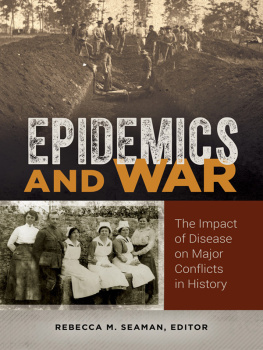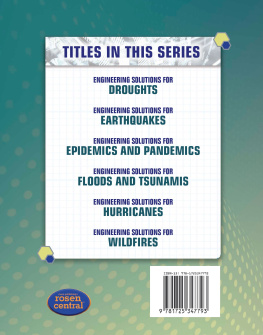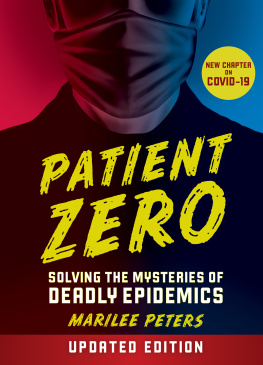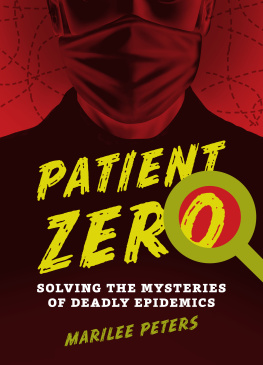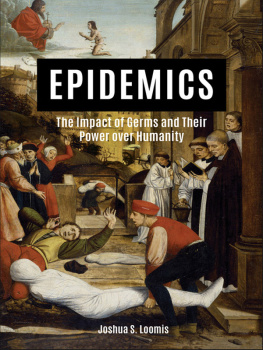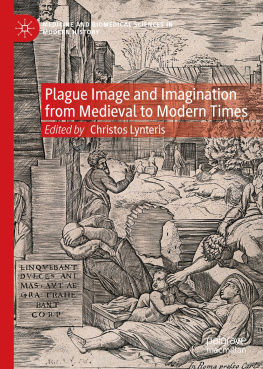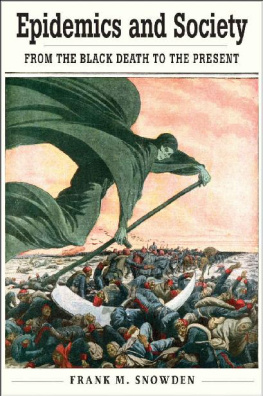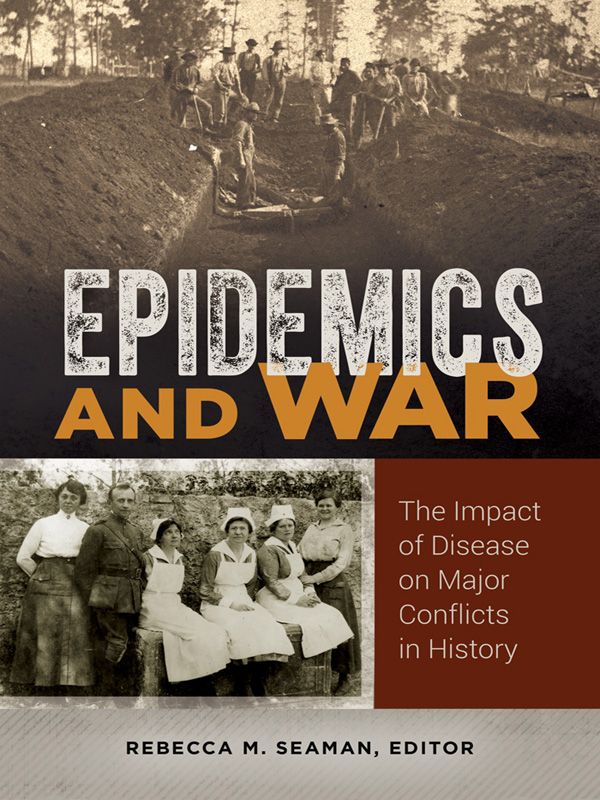Epidemics and War
Copyright 2018 by ABC-CLIO, LLC
All rights reserved. No part of this publication may be reproduced, stored in a retrieval system, or transmitted, in any form or by any means, electronic, mechanical, photocopying, recording, or otherwise, except for the inclusion of brief quotations in a review, without prior permission in writing from the publisher.
Library of Congress Cataloging-in-Publication Data
Names: Seaman, Rebecca M., editor.
Title: Epidemics and war : the impact of disease on major conflicts in history / Rebecca M. Seaman, editor.
Description: Santa Barbara, California : ABC-CLIO, LLC, [2018] | Includes bibliographical references and index.
Identifiers: LCCN 2017049950 (print) | LCCN 2018005269 (ebook) | ISBN 9781440852251 (eBook) | ISBN 9781440852244 (hardcopy : alk. paper)
Subjects: LCSH: EpidemicsHistory. | Communicable diseasesHistory. | WarMedical aspects.
Classification: LCC RA649 (ebook) | LCC RA649 .E65 2018 (print) | DDC 614.4/9dc23
LC record available at https://lccn.loc.gov/2017049950
ISBN: 978-1-4408-5224-4 (print)
978-1-4408-5225-1 (ebook)
22 21 20 19 181 2 3 4 5
This book is also available as an eBook.
ABC-CLIO
An Imprint of ABC-CLIO, LLC
ABC-CLIO, LLC
130 Cremona Drive, P.O. Box 1911
Santa Barbara, California 93116-1911
www.abc-clio.com
This book is printed on acid-free paper 
Manufactured in the United States of America
Howard Phillips
This volume is dedicated to my parents, Don and Ruth Kelley. Their determination to give each of their children educational opportunities paved the way for me to study my inherited love of history. Their own careers, based in the sciences, and in particular my mothers nursing career, encouraged me to explore history from an interdisciplinary approach. Finally, their own experiences during World War II created an appreciation for the complexity of war and its impact on society. Collectively, their influence helped give birth to this volume.
Rebecca M. Seaman
.
Contents
Rebecca M. Seaman
Christopher Howell
Brenda Thacker
Edwin Wollert
Rebecca M. Seaman
Sarah Douglas
John Jennings White III
Rebecca M. Seaman
Hilary Green
Rebecca M. Seaman
Rebecca M. Seaman
Angela Thompson
Arthur Boylston
Christopher Davis
Sonia Valencia and Rebecca M. Seaman
Jillion Becker
Wesley Renfro
Rebecca M. Seaman
Rebecca M. Seaman
Larry Grant
Joshua M. Seaman
Rebecca M. Seaman
Rebecca M. Seaman
The purpose of this book was not to write a detailed analysis of any war or battle, as that would be far too deep and time-consuming for such a brief volume. Nor was the book intended to present a detailed medical analysis of any of the included diseases that formed the basis of epidemics studied. Instead, this volume tried to pull together elements of both specialties, providing essential information to help the reader understand the importance of place, timing, conditions, and the interaction of humans and environment in producing wars and epidemics. As a result of my own research on diseases that affected Native Americans, Epidemics and War: The Impact of Disease on Major Conflicts in History incorporates disease experiences from around the globe and across the ages. The volume is inherently tied to military history and benefited from my recent opportunity to attend the Military History Instructors Course (MHIC) at Ft. Leavenworth, Kansas.
This volume was designed with individual stand-alone chapters; each chapter provides the context for a war and epidemic covered within. However, the introductions to each group of chapters () provide insights that will help readers better understand the difficult concepts and complexities associated with each chapter of that particular section of the text. Consequently, readers are encouraged to read the section introduction before tackling any chapter within that section. The epilogue helps pull the various chapters together, preferably as a summary once the entire book is digested.
Certain threads emerged as the chapters came together for this work: the impact of reforms, the importance of the size of armies on health and disease, the relationship of humans to their environments, and the basic responses of human nature to war and epidemics. The constant seeking of knowledge that led to reforms in military strategies, structures, and medical care during wars and peacetime was an important thread that can be found in almost every chapter in the book. The conditions of war consistently provided the necessary elements that facilitated the spread of various epidemics. These conditions and epidemics also encouraged military and medical personnel to seek improvements to prevent such reoccurrences. Depending on the knowledge available, these attempts appeared useless in some instances, and even damaging in others. However, the gradual compilation of knowledge over the ages indeed resulted in the improvement of hygiene, nutrition, and medical care and the prevention or reduction of widespread contamination. The consequent decline in deaths due to disease, in comparison to the deaths due to combat, is a clear indication of such advancements.
Another thread that consistently emerged in the chapters was the importance of numbers during the conscription or recruitment of military forces. The rapid and dramatic mobilization of great armies and navies consistently played a significant role in the advent of epidemics, but one that could be countered with proper preparation, resources, and support. Unfortunately, despite the best intentions and the most progressive policies, history is not linear and does not always result in consistent improvements. Different societies and geographies created inconsistencies in experiences and in the sharing of knowledge gained through the experience of wars. As the chapters dealing with more recent conflicts reveal, increased medical knowledge, improved military practices, and medical reforms were often incapable of countering the suddenness and disruptiveness that continues to plague (pun intended) modern militaries and societies during times of war.
While other threads weave their way through various chapters, the remaining two that are important to note here include the interactions of humans with their environments during periods of war and basic responses of human nature. Even the most hygienic of individuals fell into the practice of tolerating conditions that perpetuated disease. Part of this was again due to the number of people brought together during warfare, and part was due to exhaustionmental and physical. The potential for war to pollute the environment, to cross sections of land repeatedly, eradicating vegetation and disrupting the natural processes that normally assist in the prevention of disease, was part of the detrimental human interactions with their environment. Additionally, the movement of people into regions that exposed them to new disease vectors, bacteria, viruses, fungi, protozoa, and other causal factors of epidemics increased the opportunities for new contagions. Combined with these new contagions were the human responses to previously unknown and often frightening diseases.
People often react to new and deadly illnesses with irrational responses. The chapters attempted to capture some of these responses, from perceptions of divine retribution, to racist or bigoted stereotypes and scapegoats, to superstitious remedies and rituals. Even the more recent actions to provide fresh air and clean up the physical environment of ill and wounded soldiers were based on the incorrect belief that the miasmas, or odors, associated with swamps, garbage, and human waste were the cause of such diseases as the Antonine Plague, cholera, and the Black Death, among others. While the actions were beneficial, the flawed reasoning did not address the bacteria responsible for the underlying epidemics. The human interaction with the environment and human responses to disease consistently played a role in how disease was understood and addressed in each chapter of the volume.

